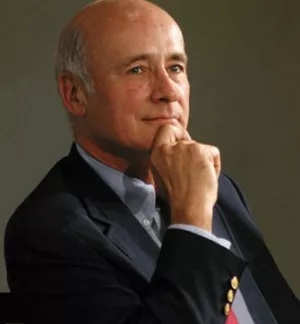IN TRADITIONAL international conflicts, the side with the stronger military force tended to win. In today's information age, it is often the party with the stronger story that wins.
Thus in addition to their shooting and killing, Israel and Hezbollah are struggling to shape the narrative that will prevail as the fighting stops. They are locked in a struggle over soft power — the ability to get what you want by attraction rather than coercion.
The ability to combine hard and soft power into a winning strategy is smart power and, thus far, Hezbollah seems ahead on that score. All that Hezbollah needs to win is not to lose, and to be able to tell the story that it was the only Muslim force brave enough to stand up to Israel.
Sadly, the struggle over soft power did not have to turn out this way. When Hezbollah kidnapped Israeli soldiers and launched rockets across the border, the actions were condemned by many Lebanese and criticized by Sunni Arab governments such as Egypt, Jordan, and Saudi Arabia. Today that public criticism has vanished, and Hezbollah is lauded for resisting Israel.
Israel used its hard military power in a manner that bolstered Hezbollah's soft power and legitimacy in Arab eyes, including many Sunnis who were originally skeptical of a Shi'ite organization with ties to non-Arab Iran. We know that terrorist organizations most often lose popular support by their own excesses — witness the drop among Jordanians in the soft power of Al Qaeda in Iraq, led by Abu Musab al-Zarqawi, after the organization bombed a wedding in an Amman hotel.
Israel had to use force in response to Hezbollah's attack to reestablish the credibility of its deterrence, but it misjudged the scale and duration of its hard-power response. Sooner or later, continued large-scale aerial bombardment, even in an era of precision munitions, was bound to produce a disaster like Qana with dozens of dead children. And with dead Lebanese children continually displayed on television day after day, public outrage was bound to limit the leeway of moderate Arab leaders and enhance Hezbollah's narrative.
A shorter military response might have kept the onus on Hezbollah's initial destabilizing attacks. Israeli leaders are quoted as telling the United States that they wanted more time to degrade Hezbollah's rockets and other military capabilities, and the Bush administration provided a green light. But the costs of such a campaign seem to have exceeded the benefits. An alternative course would have been diplomacy to end the isolation of Syria, which the United States had driven into the arms of Iran and thus facilitated the transfer of equipment to Hezbollah.
Lebanon provides larger lessons for the United States about how to conduct a war against jihadist terrorism. The current struggle is not a clash of Islam vs. the West, but a civil war within Islam between a minority of terrorists and a larger mainstream of more moderate believers. America cannot win unless the mainstream wins, and needs to use hard power against the hard core like Al Qaeda because soft power will never attract them. But soft power is essential to attract the mainstream and dry up support for the extremists.
As Secretary of Defense Donald Rumsfeld once said, the measure of success in this war is whether the number our side is killing and deterring is larger than the number that the terrorists are recruiting. By his measure, we are doing badly. In November 2003, the official number of terrorist insurgents in Iraq was 5,000. This year it was 20,000.
The manner in which we use our hard military power affects Rumsfeld's ratio. In the aftermath of the 9/11 terrorist attacks, there was a good deal of sympathy and understanding around the world for the American military response against the Taliban government that had provided bases for Al Qaeda in Afghanistan.
Our invasion of Iraq, which was not connected to 9/11, squandered that good will, and the attractiveness of the United States in Muslim countries such as Indonesia plummeted from 75 percent approval in 2000 to 15 percent in May 2003. As we have found in Iraq, occupation of a divided nation is messy and bound to lead to episodes, such as Abu Ghraib and Haditha, that undercut our soft power.
By failing to be smart about how we combine our hard and soft power in the struggle against jihadist terrorism, we fall into the trap set by Al Qaeda's Osama bin Laden and Hezbollah's Hassan Nasrallah, who want to cast the conflict as a clash of civilizations. But Islamists, much less all Muslims, have a diversity of views. America needs to be wary of strategies that help its enemies by uniting disparate forces behind one banner.
The United States has a good narrative, but its failure to combine hard and soft power into a smart strategy means that, too often, it steps on its own story, and that can be fatal.
Joseph S. Nye Jr. is a Harvard professor and the author of "Soft Power: The Means to Success in World Politics."
Nye, Joseph. “In Mideast, the Goal is 'Smart Power'.” The Boston Globe, August 19, 2006



